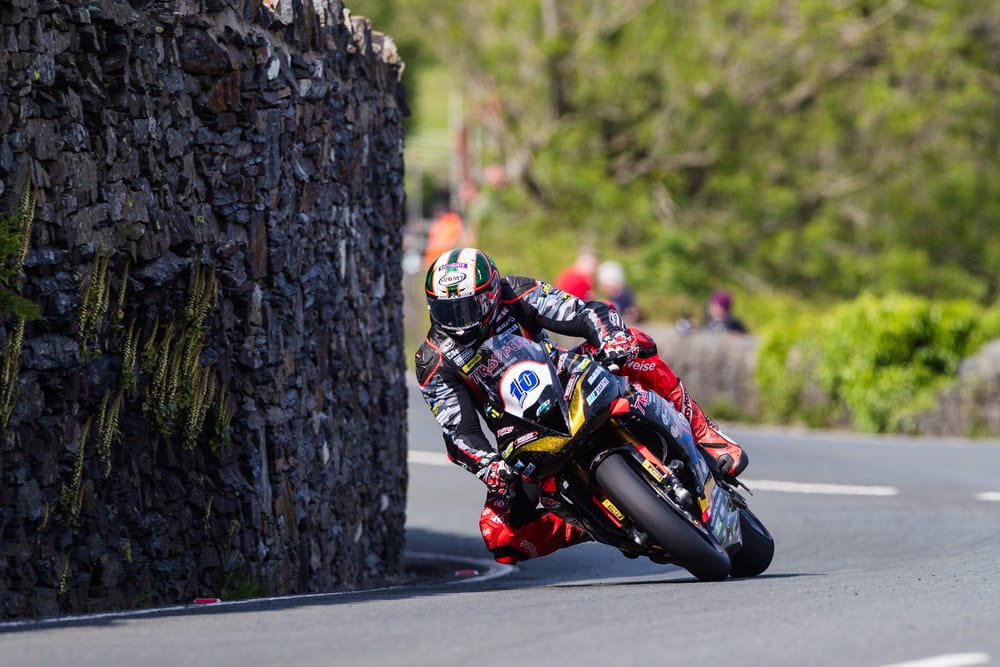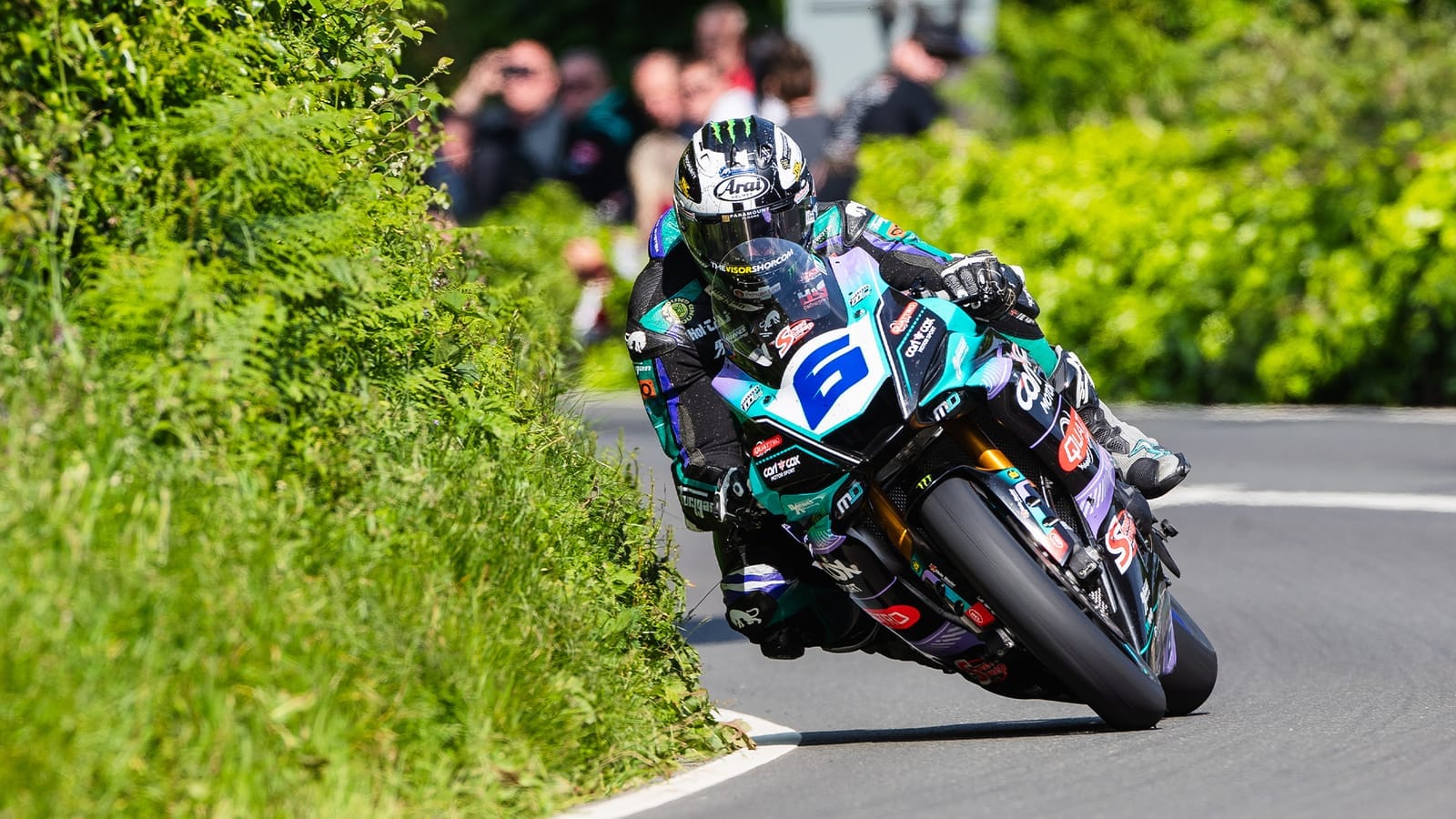While the Isle of Man TT has been running for over 100 years, the pool of talent from which it can draw has become harder to find.
Traditionally, riders would gain experience on the Irish road racing scene before graduating to the TT. Four of those traditional events remain: The Cookstown 100, the North West 200, Armoy and the Tandragee 100, which returns to the calendar this year after a two-year absence.
But as events such as the Ulster Grand Prix - last held in 2019 - and the Kells road races have disappeared, the path of progression has become less clear.
A small number of riders have come from short circuit backgrounds, such as Peter Hickman and Josh Brookes, but not enough to sustain grids longer term.
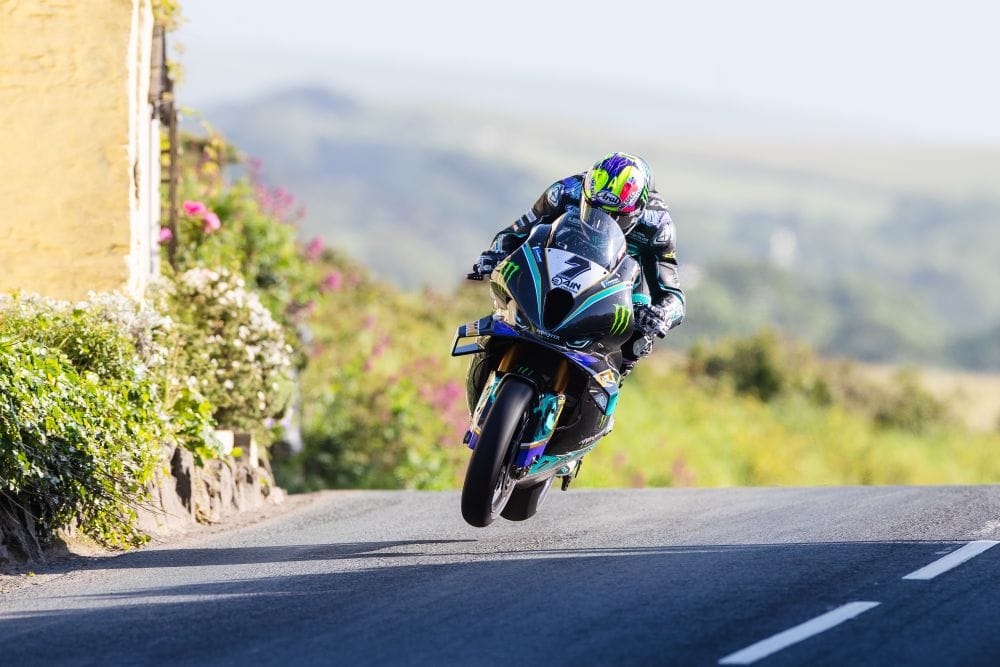
So what can the TT organiser do to futureproof its grids and ensure the event continues to attract talent in the coming years?
There are three key areas which provide challenges: The speeds which riders are now doing on the Mountain Course, the cost of taking part, and the age at which newcomers get involved.
Paul Phillips, head of motorsport for the Isle of Man Government, told The Race that his team has been investigating the solutions to these problems, and how best to develop a more strategic approach.
"We've done a big piece of work on that recently and we're about to roll that out," he said on a special edition of MotoGP Extra for The Race Members' Club. "It's been a bit more strategic than perhaps it was before.
More of The Race's TT coverage
- TT rematch? What you need to know about the 2025 North West 200
- What is the Isle of Man TT? Explaining the classes and schedule
"Before, at the start of this journey, the entry was poor and it was relatively straightforward to make that less poor and to find some newer, better riders to come and take part and then that happened kind of instantaneously.
"There became an advocacy element to that, so some of those people enjoyed it, did well out of it, told other people in their world and so on and so forth, and we've got the entry we've got today.
"A lot of those people are new and have come through that system, but it was done with a lot of gut feelings, instinct and knowledge and relationships, rather than a strategic thing. We arrived at a place - like you said, the landscape has changed, which is certainly one issue, and the other issue is that it's just so fast."
Need for speed
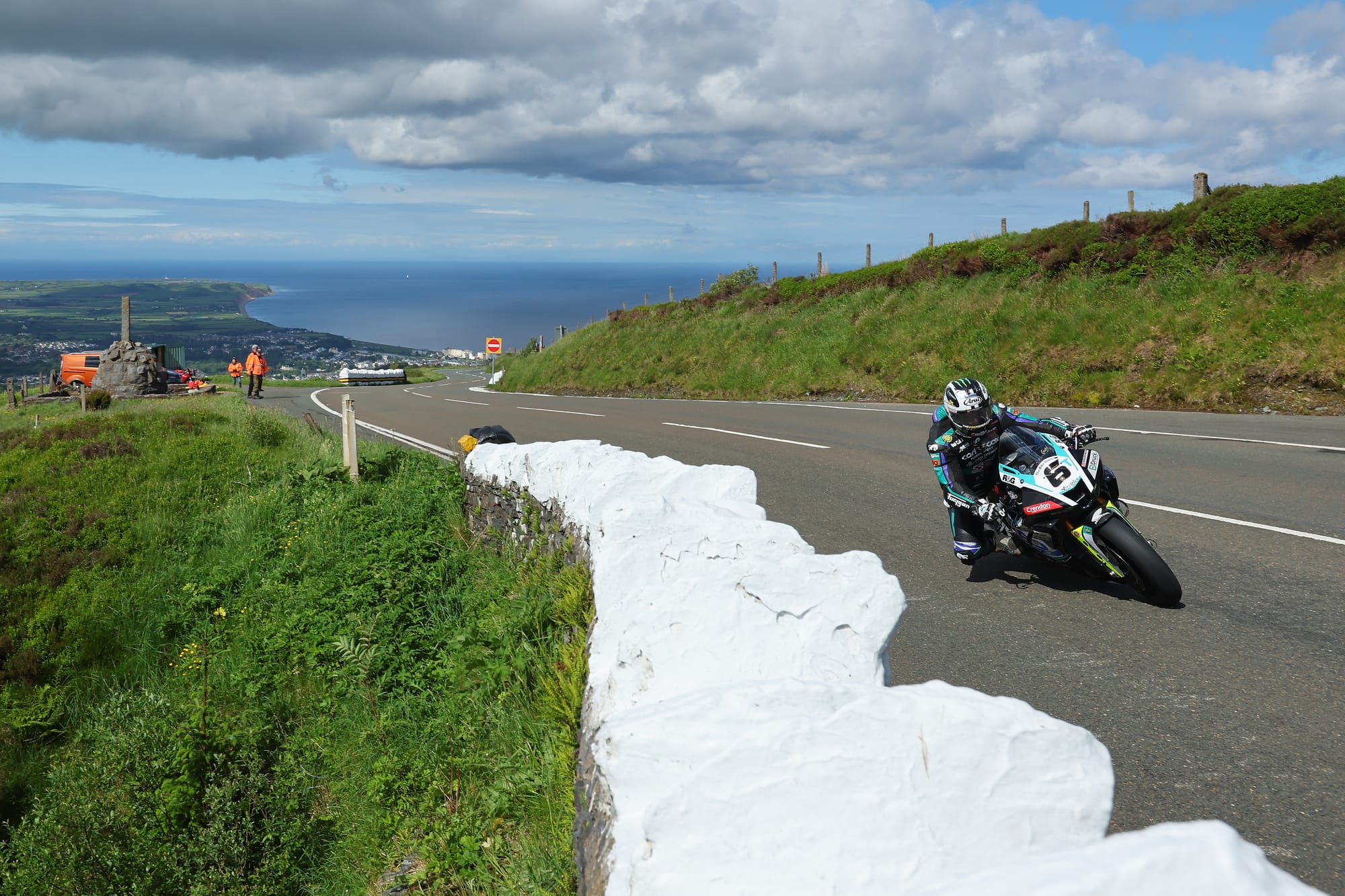
With advances in technology comes faster bikes, and with faster bikes comes faster top speeds and overall laptimes at the TT.
Around such a treacherous course, it's important for there to be a performance benchmark - especially given that in last year's first qualifying session, Michael Dunlop set a speed of 129.8mph on his outlap. In the Senior TT, two riders did 135mph standing start laps.
Phillips believes using the Manx Grand Prix more as a proving ground can also be a good path to finding more quick riders. Held annually at the end of August, the Manx is considered to be the amateurs' edition of the TT, giving riders a more grassroots entry point before stepping up to the TT itself.
"To come into the TT as a new guy is really difficult, that's a statistical fact and one we can't ignore," Phillips said. "So the riders coming into TT going forward, the gut instinct bit will go, and there will be a criteria, a benchmark for them to be considered.
"Hopefully we can look towards the Manx Grand Prix moving forward as an incubator a bit more now there are some changes in how that event is structured with the race organisation and the class structure being Supersport and Supertwin, the same as the TT, the same rules, and we can incubate people a bit more there going forwards, allow them a year or more to find some speed before they can safely come to the TT."
Follow the Isle of Man TT 2025 with The Race
The Race will be providing extensive coverage of the Isle of Man TT across our website, MotoGP podcast, MotoGP social media channels and especially in The Race Members' Club on Patreon - where you can get 75% off your first month if you join now.
Our TT content on Patreon will include full uncut exclusive podcast interviews with TT stars including John McGuinness, Peter Hickman, Davey Todd and Josh Brookes, plus Simon Patterson's behind the scenes videos from the event
Cash is king
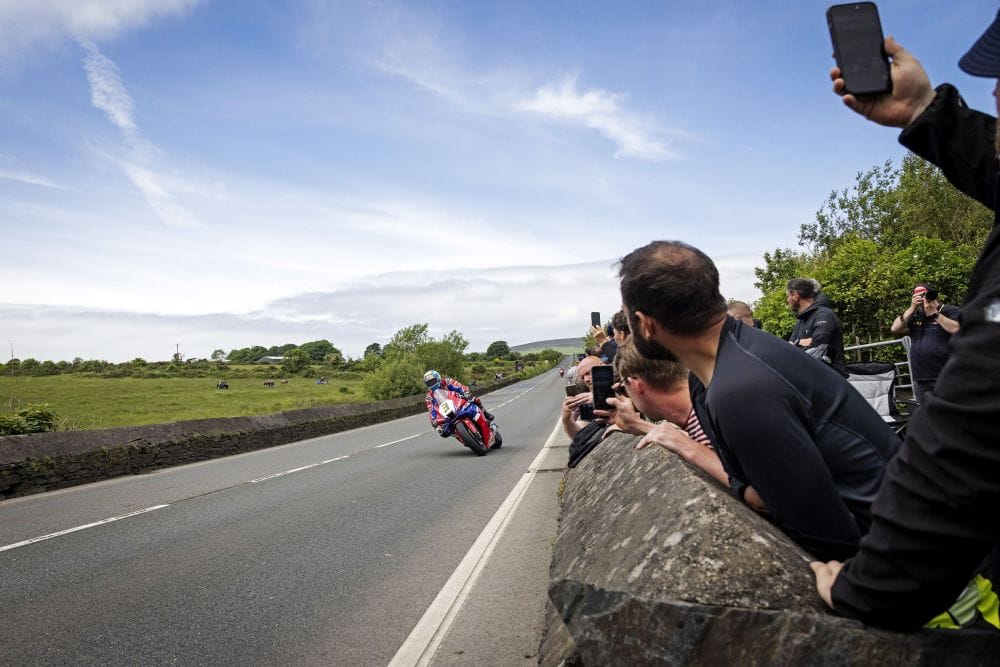
The next barrier - as with so many things - is the cost of participation.
Given the race's unique location on a small island in the Irish Sea, the cost of reaching the Isle of Man with all the requisite equipment, accommodation among a limited pool and insurance all adds up.
That, plus the cost of the bikes, tyres and parts themselves make the TT an expensive undertaking.
Given that cost barrier, Phillips revealed the TT hopes to give more riders with the right CV a taste of the Mountain Course in a 'try before you buy' concept.
"If you want to come and do the TT, it's a massive commitment," he said. "That itself is a barrier, because if you've got to invest a lot of time, money and everything else to do it, which you need to do as a newcomer to be successful, you have to do so on the basis that you don't know if you'll be successful or you'll even like it.
"That is a barrier and that's a really interesting concept, so we are going to give the curious, with the right CV, the opportunity to sample it at some stage on the track. Details of that will follow, but the flippant title among my team is the 'try before you buy' concept.
"But we know the number of riders of a high calibre in motorcycle racing elsewhere who are curious and we want to maybe give them the opportunity to see where that takes them a bit without having to make that full commitment to doing it. So there are a few different things that are coming out of that really."
Older and wiser?
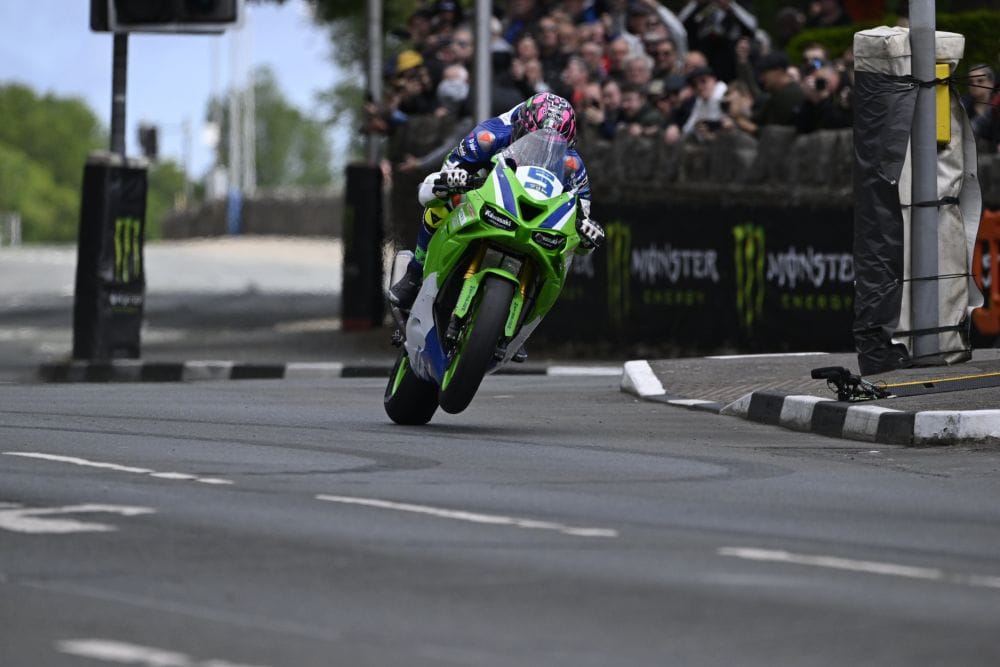
Traditionally, there has been a view that older was better when it came to road racing, with younger riders needing to gain experience before tackling tougher tracks.
But Phillips said analysis of statistics over the past 20 years proves riders racing at the TT under the age of 24 have gone on to have much success.
Both three-time race winner Dean Harrison and two-time winner Davey Todd were just 22 when they made their TT debuts, with Todd becoming the second-fastest newcomer in history with a lap speed of 128.379 mph.
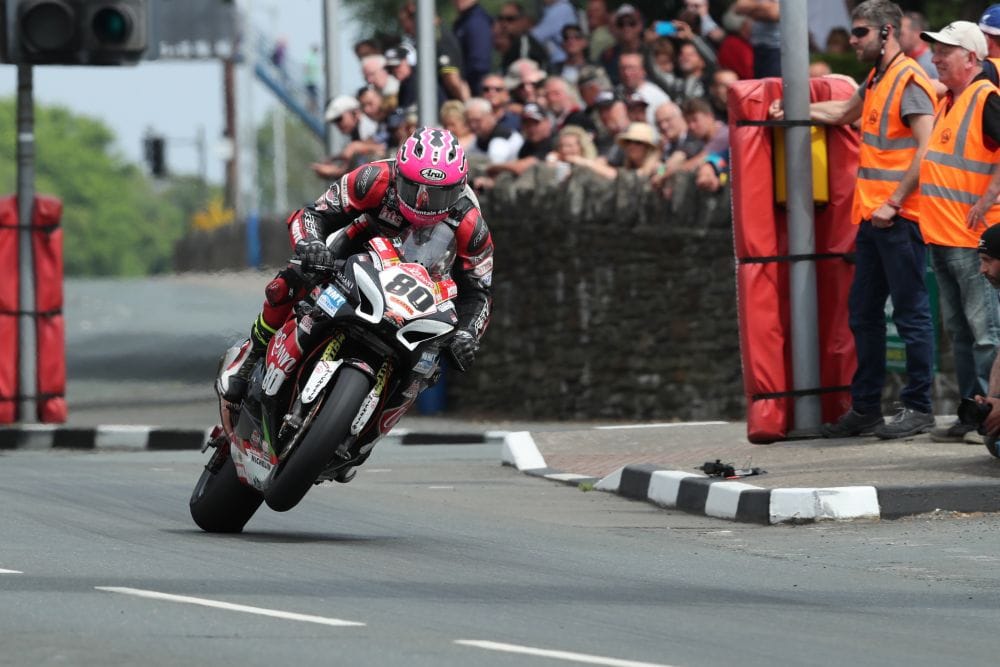
Given these findings, more focus will be placed on recruiting young riders going forwards, with a "much more organised and structured" approach.
Phillips said: "We worked out over the past 20 years, all of the new guys who'd come into the TT during that period and had scored a podium, and all bar maybe two out of about 30 of them, all bar two did so before they were 24, they were racing on this track before they were 24.
"So the focus needs to be on young riders. There's a view in the culture of road racing that you shouldn't go road racing until you're old and you've got lots of experience, but the statistics don't back that up at all.
"So a proper strategic analysis of rider recruitment is being undertaken, and going into 2026, you will see that play out I think, in terms of what we do there will be much more organised and structured than it has perhaps been in the past.
"What it has been in the past has been hugely successful, but there is now a time to reconsider that and deal with some of the current challenges. Basically, if you're a new rider to the TT, you really need to do 110mph on your first lap, which is the reality of it, which is fast."


